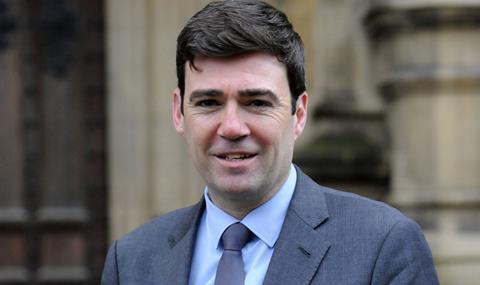
Metro mayors must harmonise measures to avoid introducing contradictory regulations, associations have warned.
The warning from both the FTA and RHA came after the election last week of six metro mayors who hold enhanced powers in their regions to make decisions on a range of policies including transport.
Both associations are seeking meetings with the new mayors to help them better understand the needs of freight operators before they roll out their respective transport policies.
FTA national policy head Chris Snelling told MT: “With the metro mayors’ enhanced powers we are in danger of seeing a move towards the localisation of the regulation of operators in each of these regions.”
Pointing to the London Mayor Sadiq Khan’s introduction of policies such as the Ultra Low Emission Zone and Direct Vision Standard as examples, Snelling added: “What we have seen in London are banner policies to catch the public eye and which go off on individual tangents and are not applied nationally. That inconsistency is a concern and something we want to avoid in these regions.”
Snelling warned that plans for clean air zones (CAZs), outlined in the government’s draft Air Quality Plan last week, could vary from region to region as metro mayors exercise their devolutionary powers.
“The metro mayors could make their own plans on clean air zones with each one regulating for different types of Ultra Low Emission Vehicles, for example. That would put a huge burden on freight operators,” Snelling warned.
FTA is also concerned that the six mayors could be under pressure to deliver policies at speed. “Since they are elected mayors with a high profile there may be greater impetus to deliver on their manifestos within their four year tenure,” he warned.
Jack Semple, RHA national policy director, said: “There is a danger that not having UK wide rules from central government, which require a high standard of evidence, will result in poorly researched measures and a lack of consistency, which is neither good policy-making nor helpful to the industry.”
Semple also raised concerns about Greater Manchester metro mayor Andy Burnham’s manifesto pledge to “focus on high-polluting vehicles, such as HGVS” as part of wider measures to tackle pollution levels in the region.
Semple said: “Andy Burnham needs to be clear about what the problem is that he is trying to solve if he is to deliver appropriate measures to tackle pollution.
"Now he is Mayor we would be keen to demonstrate to him that new HGVs are ultra low emission vehicles and these vehicles account for around 40% of HGV miles in the UK, with that figure rising all the time.
"So any plans to restrict HGVs should be somewhat lowdown on his list of priorities.”
The metro mayors:
- James Palmer for the Conservatives (Cambridgeshire and Peterborough)
- Andy Burnham for Labour (Greater Manchester)
- Steve Rotheram for Labour (Liverpool City Region)
- Ben Hoochen for the Conservatives (Tees Valley)
- Andy Street for the Conservatives (West Midlands)
- Tim Bowles for the Conservatives (West of England).
Andy Burnham
Greater Manchester metro mayor Andy Burnham is expected to make the introduction of a CAZ in Manchester one of his top priorities.
During his campaign he criticised the government's decision to exclude Greater Manchester from its list of cities prioritised for CAZs and wrote to Prime Minister Theresa May to demand the new Manchester mayor be given the powers to introduce a CAZ.
With Manchester breaching its legal air pollution limits for nitrogen dioxide every year since 2011 Burnham has pledged to take immediate action. Burnham said in his manifesto that, if given the powers, he will focus on “high-polluting vehicles, such as HGVS”.
Other ideas under consideration by Burnham for a Clean Air Action Plan include mandating cleaner buses under new powers to regulate bus services, investing in new cycle lanes and issuing public health alerts when pollution levels are high.














